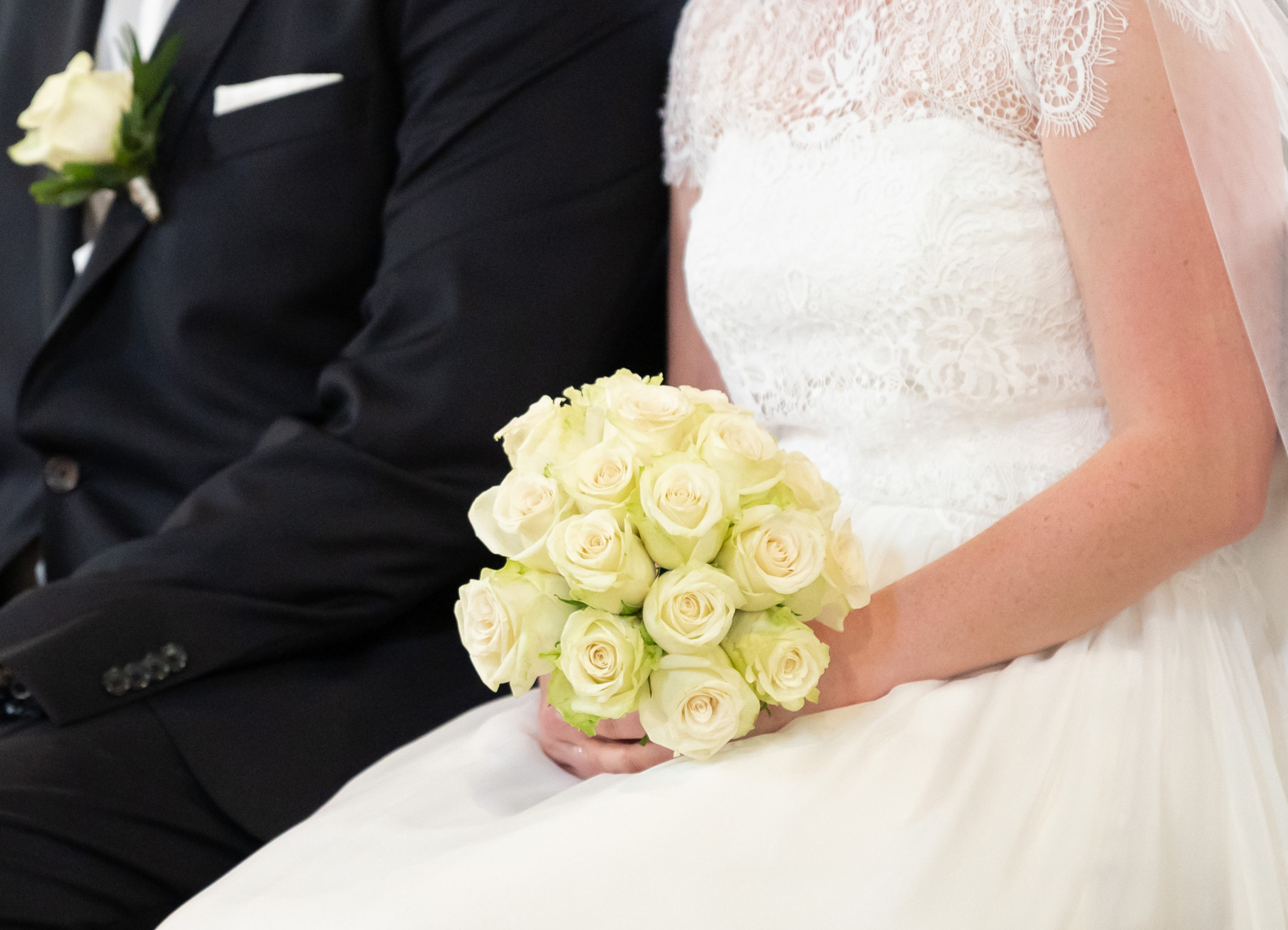So you’ve fallen in love in Germany and you and your partner now want to affirm that you'll stay together “until death do us part”. Congratulations!
Now the hard work begins. You have to pick a wedding venue, whittle down your invitation list and probably arrange for friends and family to come from some far flung part of the world.
Another complication will be picking the location for the wedding ceremony itself. If you want to marry in a church there are quite a few rules you will need to know about.
Here’s a little help.
The paperwork
An important point about getting married in Germany, which everyone should know, is that a church wedding does not actually count in any bureaucratic sense as getting married.
You will need to first get married at a Standesamt (registry office) before you can marry in the Church.
READ ALSO: 'Ja, ich will': What it's like to get married in Germany
The Catholic church
If you are both Catholics who were baptised in your home country but you've never joined the church in Germany, it should be relatively straightforward to sort things out with a church in your neighbourhood.
"The Catholic Church doesn't see people as foreigners," Stefan Förner, a spokesman for the Berlin Diocese, told The Local.
"With proof of your affiliation to the Catholic Church, you can basically get married anywhere," he added.
If baptismal certificates have to be translated from a less common language this can "lead to delays," he warns. However, in a lot of cases, catholic baptismal certificates are written in the religion’s universal language of Latin – which makes things much easier.
"Basically, there is no need for additional documents because someone is not a German citizen," Förner reassures.
Another rule that is important to know: if one of you is a Catholic and the other belongs to another denomination, it is still possible to tie the knot in a Catholic church.
"As far as other Christian churches are concerned, we speak of a so-called confession-dividing or -connecting marriage," says Förner.
"A lot then depends on what the other churches understand a marriage ceremony to be: for Catholics and Orthodox Christians it is a sacrament, for the churches of the Reformation it is not."
Förner says that the best thing to do is to arrange a meeting between the clerics from each of your churches so they can reach an agreement on how to proceed. This is especially easy in the capital. "That's the beauty of Berlin: there are Christians from almost all countries and from different denominations."
If you are a member of the Catholic Church you can also marry someone who is not religious. Again though, the Church recommends a tailored service that is appropriate to the beliefs of both bride and groom.
This also goes for members of other faiths. The Diocese of Mainz says that it welcomes ceremonies between a Catholic and a Muslim and that priests are happy to conduct such ceremonies outside of the church if that makes both families feel more comfortable.
On the other hand, if neither bride nor groom is a member of the church then you will not be able to marry in a Catholic church.
If you still want to use a church as a backdrop for your ceremony, you can still look into renting one which has been deconsecrated and is now used as an event location.

Protestant churches
Getting married in a Protestant church in Germany if you are a member of a Protestant church in your homeland is a bit more complicated.
"Our relationships with the various protestant churches in other European countries vary from confession to confession and so there is no one answer to how this could be arranged," Bernd Tiggemann, a spokesman for the Evangelical Church in Germany (EKB), told the Local.
Tiggermann also points out that an Anglican couple who wanted to use a protestant church for their ceremony should contact one of the many English-speaking ministries in Germany. It would also be possible to use a protestant church for the service. This is something you would have to discuss with the local chapter of the EKB.
Other than that, the rules in the protestant church are similar to those in the Catholic church. If one of the couple if a member of the church then they can marry a Catholic, a non-believer or a member of another faith in a church service.
If neither of you are church members, then it won’t be possible for you to marry in a protestant church.
The EKB reminds people who were once congregants and have since left that getting married might be a good time to consider rejoining.
What about other ceremonies?
Most other important church ceremonies, such as baptism and confirmation, involve becoming a member of the church or reaffirming one's belief. Obviously, it makes no sense to perform these if one is not a member of the church.
Another delicate religious ceremony that people might want to have carried out in a church is a funeral service.
Basically, there is no rule in the German churches stopping a priest from conducting a funeral service for a non-believer.
Both the Catholic and protestant churches leave it largely up to their pastors to decide whether they are prepared to conduct a funeral service for someone who is not a church member.
This appears to be quite a sensitive issue. Clerics who are open to conducting such ceremonies are only likely to do so if the deceased was once a member of the church and indicated in his or her final days that they were once again finding their way to God.
But many clerics will refuse such a request from the deceased's family, saying that the decision to leave the church has to be taken seriously.

Comments